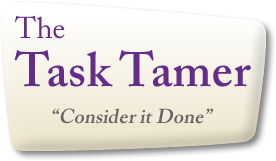
This week I have a doctor’s appointment for a routine checkup. It’s not something I am looking forward to. Aside from having to undress in a cold room, getting poked and prodded and the doctor making small talk to distract me from what is going on, there will be the worst 30 seconds of the day: the dreaded weigh-in. Back to that in a bit.
Did you see the recent article in the New York Times about how the contestants from The Biggest Loser, season 8 (six years ago) have regained some, all or more of the weight they lost? It is easy to assume that it happens because they just went back to their old lifestyle of overeating and no exercise. But when the researchers delved into their lives, they found something very surprising: when the contestants lost the weight, they had slowed their metabolism down and it never recovered. Their bodies are actually working against them and their desire to keep the weight off. No matter how hard they tried to eat sensibly and work out regularly, their brains were telling them they were hungry and it became a constant battle to not regain. One that almost all of them were losing.

They leads me to another article that talks about how exercise is not the answer to weight loss or weight maintenance. How often have you said to yourself (or heard others say) you need to exercise more to lose weight? I have written often about how it is much more important to exercise control over what you are eating than to exercise your body if you want to regulate your weight. This article makes clear that the most important aspect about our weight is our metabolism. I wrote a couple blogs about this (here and here). Our metabolism will change over time or when major changes occur to our bodies, such as when the Biggest Loser contestants lost a lot of weight, but it is not easy to control. We often think of weight management as a calorie in means a calorie out. With this logic, the more calories you burn with exercise, the more calories you should be able to consume. Now, researchers are discovering that the biggest burner of calories is our body itself. All the energy that goes into just functioning is called basal metabolism and it accounts for 60%-80% of the calories we burn each day. And here’s the crazy part:
“Researchers have discovered a phenomenon called 'metabolic compensation,’ whereby, as people either expend more energy through physical activity or lose weight, their basal metabolic rate slows down.”
There is a limit to how many calories our bodies are willing to burn through exercise. When our brain perceives that we are using too much energy it tells the body to start conserving and our metabolism slows down.

In conclusion, our bodies are all unique, as is our metabolism. There are some who will burn more calories simply because their basal metabolism is naturally high. Exercise is an extremely important part of maintaining a healthy body. However, it cannot be the answer to losing or maintaining weight. One of the contestants who regained weight talked about how he was working out as much as 4-6 hours a day! His body couldn't deal with that so it stopped burning calories to protect itself. Turns out, our brain is, yet again, the most important muscle to exercise. Use it to make sensible choices about food and exercise. Most importantly, use it to remember you are much more than a number on a scale. That number does not signify health or happiness. Accepting our bodies and continuing maintenance on them to have a high quality of life is the best gift you can give yourself.
Bring on the weigh-in!
This week’s recipe was so good I forgot to take a picture before we gobbled it up!
Mushroom, Spinach and Bean Noodle Soup
1 cup dried white beans, soaked 8 hours in water with 1 teaspoon baking soda added (or one can cooked beans)
1 teaspoons baking soda, divided
1 ounce dried porcini mushrooms
1 large parmesan rind*
1 tablespoon amino acids (or low sodium soy sauce or coconut aminos)
2 tablespoons olive oil
1 small onion, diced
2 cloves garlic, minced
3 cups sliced, mixed mushrooms (button, cremini shiitake)
1 tablespoon chopped fresh rosemary (or 1 teaspoon dried)
4 ounces whole-wheat udon noodles
1 bunch fresh spinach, rinsed and chopped
Directions:
*When I finish a block of parmesan I throw the rind in a ziplock bag and freeze it to use whenever I make sauce or soup. To make this soup vegan, omit the parmesan rind and sprinkle nutritional yeast on just before serving.